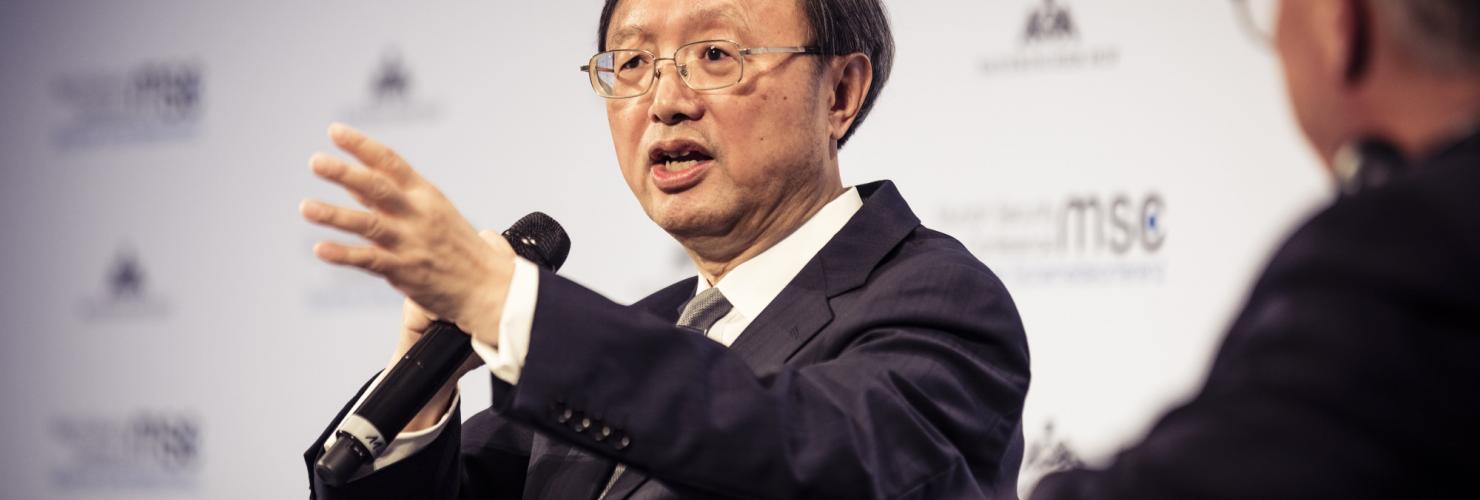
In arms control, China needs to stop free-riding
According to the most recent estimates, China now has the second largest defense budget behind the United States. If Beijing refuses to engage in arms control, it takes a free ride and behaves as irresponsibly as Russia and the United States did by just walking away from the INF treaty.
Few countries have benefitted more from the liberal international trade order than China. After opening up to foreign investment and joining the World Trade Organization on Dec. 11, 2001, China’s merchandise exports multiplied by a factor of nine. Together with the United States and Germany, China has become one of the top three trading powers; in 2017, it was again the world’s largest. Yet China did not so much play by the rules of that order as to use them: as a cover to promote its own rise, pursuing a state-inspired, state-led strategy – mercantilism, rather than free enterprise.
China’s rapidly growing missile forces have long troubled not only the US
Something similar has been happening with regard to international security. Here, too, China has pursued its own strategy under the cover of international agreements. China’s objective has been to become a major military power, able to challenge even the United States, at least in East Asia. The international agreement that China was free to exploit - because it was not bound by it - was the bilateral Intermediate Nuclear Forces (INF) treaty that the United States and the Soviet Union concluded in 1987. Both recently walked away from the treaty (officially, it is suspended but few would bet on its survival after the six months grace period has elapsed), which outlawed the deployment of land-based intermediate range missiles with a range between 500 and 5,500 kilometres - precisely the category of weapons systems that China in recent years has been developing and deploying by the hundreds and even by the thousands, arming them with conventional rather than nuclear warheads. This massive arms build-up, conducted on the back of a (so far) rapidly growing economy and hence rather painless for China, threatens to undermine the regional security order and hence stability in East Asia – and globally.
China’s rapidly growing missile forces have long troubled not only the United States, but also Russia. As early as 2005, Moscow suggested to Washington to jointly abrogate the INF treaty, as it no longer reflected the new strategic environment. In 2007, the two governments proposed new, multilateral arms control negotiations to the UN General Assembly to address the proliferation of missile technology and the build-up in China and other countries, but Beijing promptly turned down the suggestion. Moscow then proceeded on its own, developing and deploying its new 9M729 missiles (known in the West as SSC-8), in breach of its INF treaty obligations.
For the United States, China’s military build-up challenges its strategic dominance in East Asia. China’s DF-21D long-range, high-precision “carrier killer” missiles threaten US aircraft carriers and thus push them away from East Asia. Its other missiles target the whole gamut of America’s forward military infrastructure in East Asia, such as its bases, its aircraft and its ships in Japan. An elaborate war game simulation conducted on behalf of the US Navy found that, by using about 20 percent of its short-range ballistic missiles, 25 percent of its medium-range ballistic missiles, and up to 95 per cent of its ground-launched cruise missiles inventory, China could within minutes destroy all major US headquarters in Japan, almost all US ships in port, nearly every runway at US airbases, and more than 200 aircraft that were trapped on those cratered runways.
China now has the second largest defense budget behind the US
German Chancellor Angela Merkel therefore got it right when she appealed to China to join efforts to contain a new arms race at the Munich Security Conference in mid-February. She was rebuked immediately, however, by Yang Jiechi, China’s State Councillor, who claimed that China’s military build-up was purely defensive and should therefore be of no concern to any other country. This is disingenuous: according to the most recent figures and estimates by the London-based International Institute for Strategic Studies (IISS), China now has the second largest defense budget behind the United States – and China’s fire power is largely concentrated in one critical region, East Asia.
Moreover, it is not so much the figures as the trends that matter: in the year 2000, US defense expenditure was nine times that of China, in 2010, this was down to less than six times, and in 2017 to less than three times. Even more telling is the comparison of Japan’s and China’s defense spending: Starting from similar levels in 2000, China spent five times as much as Japan in 2017.
If China refuses to engage in arms control, it takes a free ride and behaves as irresponsibly as Russia and the United States did by just walking away from the INF treaty. Collectively, these three great powers are about to bring back the dangers of annihilation the world faced during the Cold War. Their search for unilateral military advantages through superior technologies and ever larger quantities of ever faster, more precise and destructive weapons systems will make the world a much more dangerous place - for all of us. It took the two superpowers, America and the Soviet Union, many years to understand that simple truth, and even longer to draw the conclusions and start destroying nuclear weapons and missiles. Their present leaders have forgotten, and China’s leadership seems unable to understand what it means to be a responsible great power.

